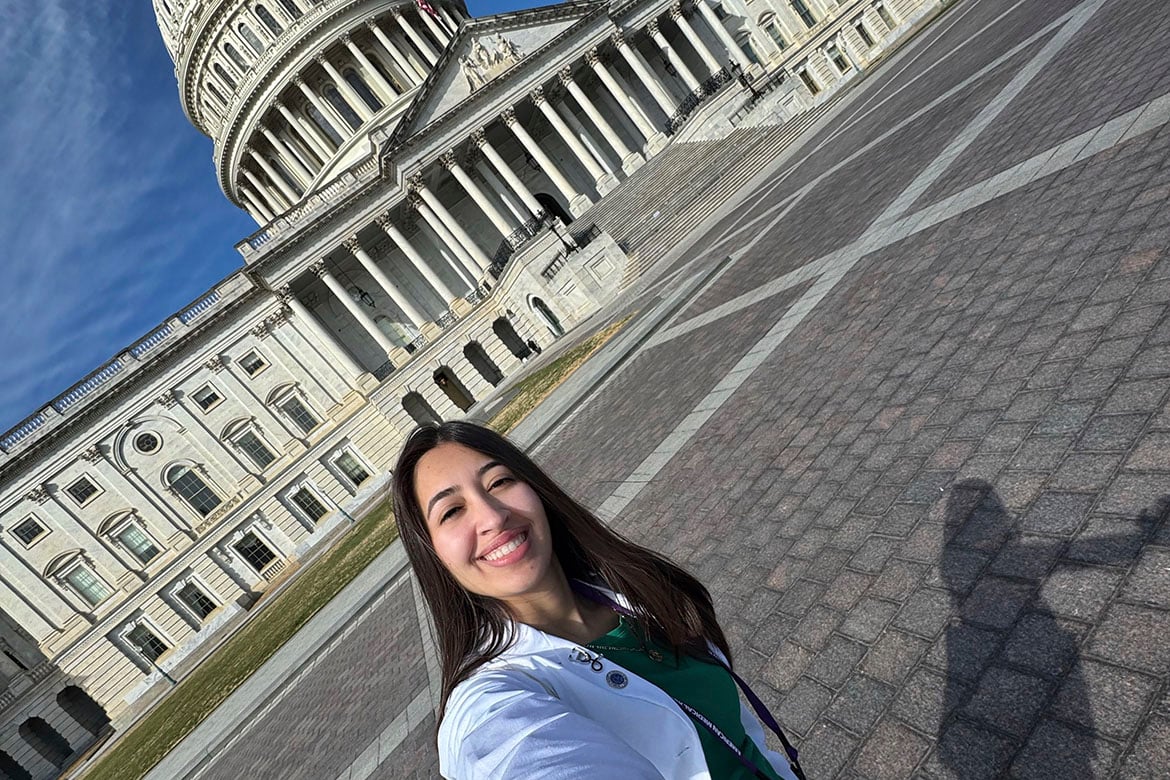As both a vehicle for advocacy training and leadership development, the AMA Medical Student Advocacy Conference is a key opportunity for medical students to develop key skills that they will carry with them throughout their careers as physicians.
Reflecting on the event, one first-time attendee offered her perspective on how the conference helped broaden her perspective on the role physicians can play in shaping health policy.
Bridging medicine, policy
A second-year medical student in New York, AMA member Myra Moghal thought that her career might be limited to the science of medicine. The Medical Student Advocacy Conference opened her eyes to the possibilities.
"I have always worried that choosing a career in medicine would mean choosing science and foregoing the rest of my passion areas, like my interest in political science and law," she said. "I realized, especially while meeting with legislators and staff, that this worry turned out to be entirely baseless."
For medical students looking to turn their passions into health policy, the AMA offers the chance to connect with nearly 53,000 AMA student members, get hands-on experience advocating for change at the state and federal levels through trainings, meetings and events in Washington, D.C.—and online.
Dive deeper:
- How to boost your medical student leadership skill set
- Why medical students should get involved in local advocacy
- Tips to find enriching medical student leadership opportunities
- 3 keys for medical student advocates on Capitol Hill
Conversations that matter
Medical students attending this marquee AMA conference had the opportunity to meet directly with members of Congress or their staff members to discuss key issues in health care policy. Moghal was surprised at how engaged the legislators were, particularly when she shared her personal experiences.
“I found that a single personal anecdote I decided to share may have been the turning point needed for a senator or congressman to co-sponsor a bill I was advocating for,” she said. “This experience taught me the true extent at which the physician voice is needed to help guide the decision-making of legislators.”
Registration is now open for the 2026 Medical Student Advocacy Conference, taking place March 5-6, 2026. Early bird registration rates of $30 are valid through June 6, 2025.
The art of persuasion
Before the Medical Student Advocacy Conference—often called MAC for short—Moghal had a general understanding of what it meant to support legislation, but she didn’t realize how strategic and personal advocacy needed to be.
"At MAC, I learned the most effective and impactful approaches to advocating for what I believe in," Moghal said. "Before attending, I didn’t realize the intricacies of lobbying for bills that I support. I have since learned that there is an art to the approach of each bill for each individual politician; it is not simply about the facts of the bill itself."
Dive deeper:
- 5 steps for medical students to make an impact in letters to Congress
- Looking to find time for medical student advocacy? Here’s how
- 5 tips for medical students looking to get an op-ed published
Future physicians take a stand
From Moghal’s vantage point, attending the conference solidified why advocacy should be an essential part of every medical student's education. She encourages fellow medical students to make time for the Medical Student Advocacy Conference—even if their schedules are packed.
"It really is challenging to find time in our busy medical student schedules,” she said. “However, I am so grateful that I made room to attend," she said. "I not only learned to use my voice to make a real impact in this country but also did so alongside some of the kindest and most passionate people I’ve ever met."





